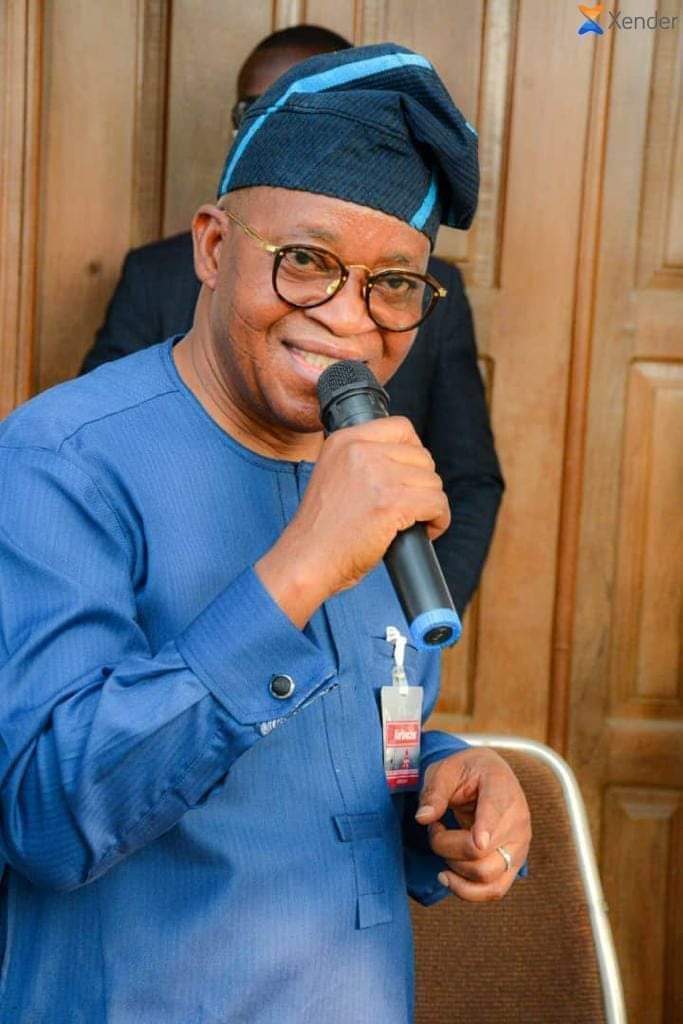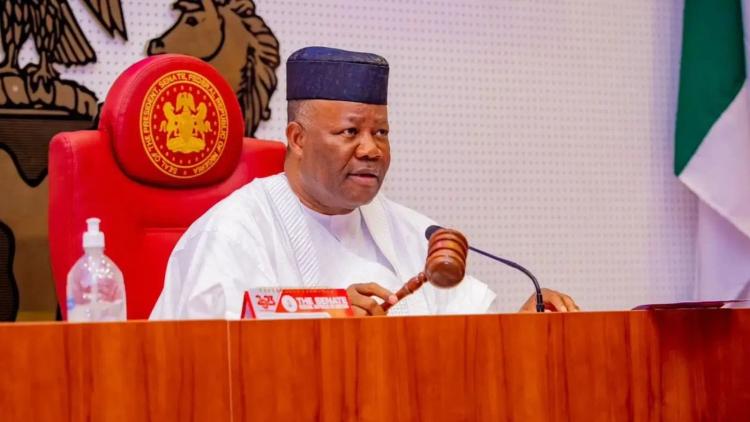I am not a lawyer. But as an experienced journalist, I have reported judicial processes for decades. So, I am familiar with the election litigation issues.
It is in the light of the above that I make this intervention to provide us with further and better understanding of the issues at stake. Before I proceed to address the issues, let me say without fear of any contradiction that the Election Tribunal is a special court with its own rules and guidelines.
Therefore, if the plan of the ‘coup plotters,’ was to stall the petitions before the tribunal, I dare say, they have failed. It cannot affect it. The Tribunal is not your regular court. Issues have been joined already. Even if they raise it, the tribunal will take judicial notice of it, and address it appropriately. There are procedures to follow to bring up such an issue and, I don’t see it happening tomorrow. But even if they are able to complete the process before 10 am on Tuesday when the Tribunal is expected to resume sitting, it will still not stall the matter as intended.
Gone are the days when frivolous injuctions and rulings from other courts are used to arrest the proceedings at the Tribunal. Those days are gone for good. I am happy that I was part of the team that began the revolutionary provisions in our Electoral Act when I served as one of the Consultants to the Senate Committee on Constitution Review between 2011 and 2015.
That said, let’s address the issue as to whether the opposition party can challenge the outcome of another party’s primary. For me, this was the crux of Justice Emeka Nwite’s last Friday’s decision.
In the said judgment, the judge nullified the candidacy of Mr. Oyetola of the APC and his deputy, Benedict Alabi, on the grounds that Governor Mai Mala Buni of Yobe, who submitted their names to the Independent National Electoral Commission (INEC) violated the provisions of Section 183 of the Constitution by allegedly holding dual executive positions. Ironically, the PDP is the plaintiff.
ISSUE 1 – THAT PDP (THE PLAINTIFF) HAS A RIGHT TO INSTITUTE THE MATTER BEFORE THE COURT
The Court relied on Section 285(14) (c) of the Constitution of the Federal Republic of Nigeria 1999 (as amended)- (14) For the purpose of this section, “pre-election matter” means any suit by-
(a) an aspirant who complains that any of the provisions of the Electoral Act or any Act of the National Assembly regulating the
conduct of primaries of political parties and the provisions of the guidelines of a political party for conduct of party primaries has
not been complied with by a political party in respect of the selection or nomination of candidates for an election;
(b) an aspirant challenging the actions, decisions or activities of the Independent National Electoral Commission in respect of his participation in an election or who complains that the provisions of the Electoral Act or any Act of the National Assembly
regulating elections in Nigeria has not been complied with by the Independent National Electoral Commission in respect of the
selection or nomination of candidates and participation in an election; and
(c) a political party challenging the actions, decisions or activities of the Independent National Electoral Commission disqualifying its candidate from participating in an election or a complaint that the provisions of the Electoral Act or any other applicable law has
not been complied with by the Independent National electoral Commission in respect of the nomination of candidates of political parties for an election, timetable for an election, registration of voters and other activities of the Commission in respect of preparation for an election.”
However, in the case of EZEH V. PDP & ORS (2018) LPELR-44907(SC), the court held that only an aspirant in a primary election has locus standi to challenge its outcome. See also Daniel V. INEC (2015) 9 NWLR (Pt 1463) 113 at 148.
Flowing from the above, will it be appropriate to hold that the PDP had the locus standi to have brought the case before the Federal High Court?
Let us proceed to look at ISSUE 2 – THAT MAI BALA BUNI, WHO CHAIRED THE APC CARETAKER AND CONVENTION EXTRA-ORDINARY COMMITTEE WITH THE AUTHORITY AND POWER TO SUBMIT OYETOLA’S NAME AS THE DULY RECOGNIZED CANDIDATE OF APC FOR THE 2022 GUBERNATORIAL ELECTION VIOLATED SECTION 183 OF THE CONSTITUTION OF THE FEDERAL REPUBLIC OF NIGERIA FOR HOLDING DUAL EXECUTIVE POSITIONS AS THE GOVERNOR OF YOBE AND THE CHAIRMAN OF THE NATIONAL CARETAKER COMMITTEE OF APC.
The court relied on Section 183 of the constitution and Section 82 (3) of the Electoral Act – Governor: disqualification from other jobs
“The Governor shall not, during the period when he holds office, hold any other executive office or paid employment in any capacity whatsoever.”
Section 82 (3) of the Electoral Act
“The election of members of the executive committee or other governing body of a political party, including the election to fill a vacant position in any of the aforesaid bodies, shall be conducted in a democratic manner and allowing for all members of the party or duly elected delegates to vote in support of a candidate of their choice.”
Let us take the provisions one after the other. Can anyone prove that the work of a caretaker chairman is a paid employment or an executive office as being contemplated in this sense?
Again, from the Electoral Act, it presupposes that to truly occupy a party executive position as being contemplated by the Electoral Act, there has to be an election. Did Mr. Buni obtain any form for the purpose of emerging as caretaker chairman? Did Mr. Buni stand for any election as carataker chairman? If the answers to the above are nagative, then, the Justice Nwite’s pronouncement cannot stand. Besides, the Supreme Court has since settled the matter.
In deciding the Governor Rotimi Akeredolu’s matter, the apex court held that the provisions that govern sponsorship and nomination of candidates in an election are: Sections 31 and 87 of the Electoral Act, 2010 as amended.
“That there is no provision in the Electoral Act prescribing any form for forwarding or submission of the sponsored candidate of a political party in an election.
“Sections 177 and 182 of the CFRN, which make provisions for qualifications and disqualification of candidates for Governorship election are exhaustive and leave no room for any addition.
“That no other Law/Act can be relied upon to disqualify a candidate in an election save for the provisions of Section 182 of the CFRN.
“That sponsorship of a candidate in an election is that of the party and not the individual Officer of the party forwarding the name of the candidate.
“That the National Executive Committee (NEC) of the party is empowered to create, elect and appoint Committees (including the instant CECPC) or any other committee it may deem necessary to act in any capacity.”
What more can one say other than to conclude that last Friday’s judgement was tantamount to unsettling the tenets of law and turning the law on its head.
To the admirers and supporters of Governor Adegboyega Oyetola, our eyes must be on the ball. The Federal High Court is a court of first instance in this matter. We have implicit confidence in the Appeal Court to set aside the judgement.
They want to distract us from the Tribunal case. But we shall remain focused until we take back our mandate. We have confidence in the Tribunal to do justice in the case before it.
Omipidan writes from Osogbo.





